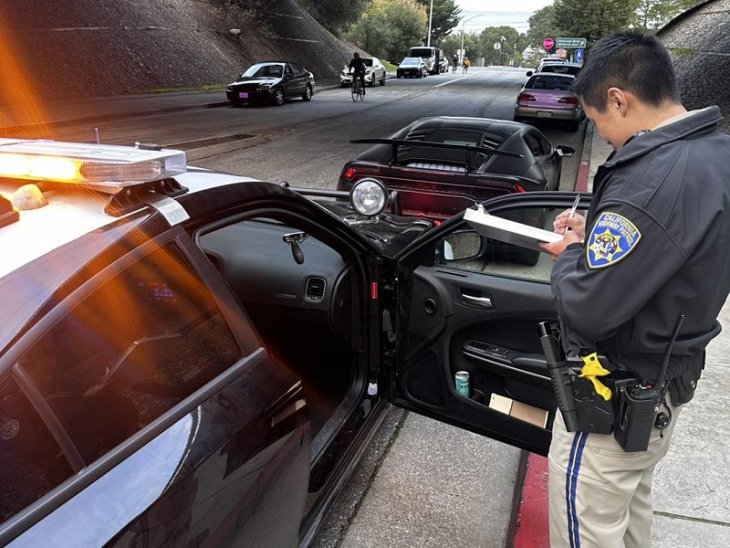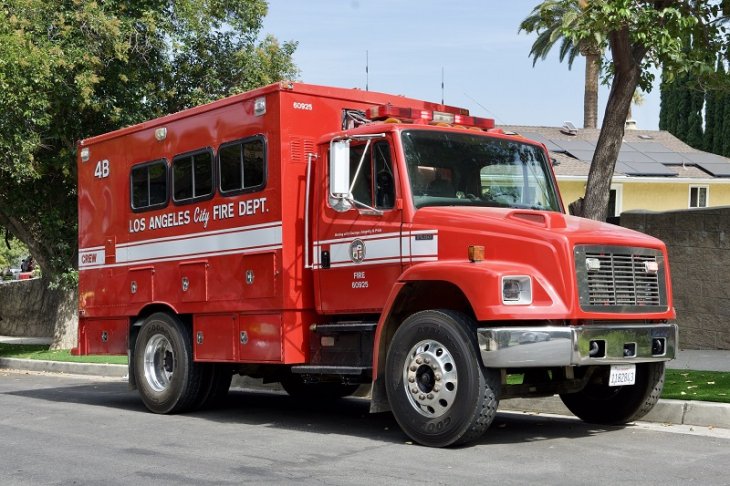
In front of a boisterous downtown Los Angeles crowd of legislater, union leaders and workers who have been fighting for increased salaries, Gov. Jerry Brown signed legislation today that will raise the state’s minimum wage to $15 an hour by 2022.
Brown, during a ceremony at the Ronald Reagan State Building, said the passage of SB 3 doesn’t mark the end of the struggle for livable wages, but it’s a big step in the right direction.
“It’s about people,” Brown said. “It’s about creating a little tiny balance in a system that every day becomes more unbalanced.”
The state Assembly and Senate both approved the legislation Thursday, despite opposition from Republicans and business leaders.
Under the legislation, California’s $10-an-hour minimum wage will increase to $10.50 in January 2017, then to $11 on Jan. 1, 2018. The minimum wage will then go up by a dollar in each of the following years until it reaches $15 in 2022, after which it will continue to rise each year by up to 3.5 percent to account for inflation.
Businesses with 25 or fewer employees get an extra year to raise their wage, so that workers will be paid $15 by 2023.
The plan also gives the governor the ability to temporarily halt the raises if there is a forecasted budget deficit of more than one percent of annual revenue, or due to poor economic conditions such as declines in jobs and retail sales.
Government workers who provide in-home health services will receive an additional three paid sick days under the plan.
“Today we’re not just witnessing the signing of a bill, we’re witnessing the honoring of our social contract — specifically that, if you get a job and work hard, you will be able to support family,” Assembly Speaker Anthony Rendon, D-Paramount, said. “For too long, that just hasn’t been the reality Many Californians who work full time can’t put a roof over their families’ haeds or put meals on their table. This bill changes that for tens of thousands of Californians.”
The wage hike will affect 5.6 million workers, or about one-third of the statewide workforce, officials said.
The proposal is similar, although slightly slower, than an already- approved increased in the city of Los Angeles minimum wage. Under the city ordinance, the minimum wage will increase to $10.50 on July 1 and eventually reach $15 per hour in 2020, with future increases pegged to the Consumer Price Index.
The same wage hike schedule was also adopted for the unincorporated areas of Los Angeles County.
“Today California leads the nation once again, passing a historic minimum wage increase that will help lift millions of hardworking men and women out of poverty,” Los Angeles Mayor Eric Garcetti said. “Last year, I led efforts to raise the wage in Los Angeles, and we watched a wave of cities follow suit. We are fighting against income inequality with every tool we have.”
Other California cities have also enacted wage increases, some even earlier than Los Angeles. San Jose’s wage rose to $10.30 per hour in Jan. 1, 2015, and is set to continue climbing depending on the CPI.
San Francisco’s minimum hourly wage, now at $12.25, will go up to $13 on July 1 and to $15 in 2018, followed by further increases based on CPI, under a measure approved by that city’s voters in 2014.
Republicans and business leaders opposed the statewide minimum-wage hike, arguing it will lead to businesses reducing the size of their work force or increasing prices to cover the costs of the increased wages.
Stuart Waldman, president of the Van Nuys-based Valley Industry & Commerce Association, said the law will also give businesses another reason to leave the state entirely.
“If you wanted to guarantee California will be the most expensive place to do business in the country for the foreseeable future, this is a good first step,” Waldman said. “We encourage California lawmakers to engage with the business community in order to work toward real solutions for income equality. The creation of well-paying jobs is fostered through smart fiscal policies and efficient government — not simply making businesses pay more in wages.”
But supporters, primarily Democrats, rallied behind the proposal, saying workers earning minimum wage should be able to pay for basic necessities.
“Wages are not keeping pace with the cost of living in California. Income inequality continues to grow,” said Assemblywoman Toni Atkins, D-San Diego. “This proposal will help millions of hard-working Californians while protecting taxpayers and small businesses if the economy experiences a downturn. We can be prudent and make sure workers are paid a reasonable, livable wage at the same time. It doesn’t have to be a choice.”
Labor unions are pushing two separate ballot initiatives aimed at raising the state’s minimum wage to $15 an hour. Backers of one of the initiatives have said they will drop their effort in light of the new law. Backers of the other initiative said they are waiting until the governor signs the bill before deciding whether to drop their measure.




















